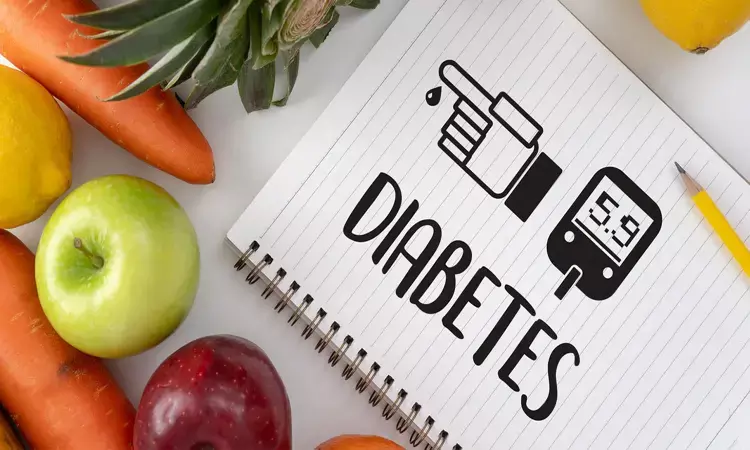- Home
- Medical news & Guidelines
- Anesthesiology
- Cardiology and CTVS
- Critical Care
- Dentistry
- Dermatology
- Diabetes and Endocrinology
- ENT
- Gastroenterology
- Medicine
- Nephrology
- Neurology
- Obstretics-Gynaecology
- Oncology
- Ophthalmology
- Orthopaedics
- Pediatrics-Neonatology
- Psychiatry
- Pulmonology
- Radiology
- Surgery
- Urology
- Laboratory Medicine
- Diet
- Nursing
- Paramedical
- Physiotherapy
- Health news
- Fact Check
- Bone Health Fact Check
- Brain Health Fact Check
- Cancer Related Fact Check
- Child Care Fact Check
- Dental and oral health fact check
- Diabetes and metabolic health fact check
- Diet and Nutrition Fact Check
- Eye and ENT Care Fact Check
- Fitness fact check
- Gut health fact check
- Heart health fact check
- Kidney health fact check
- Medical education fact check
- Men's health fact check
- Respiratory fact check
- Skin and hair care fact check
- Vaccine and Immunization fact check
- Women's health fact check
- AYUSH
- State News
- Andaman and Nicobar Islands
- Andhra Pradesh
- Arunachal Pradesh
- Assam
- Bihar
- Chandigarh
- Chattisgarh
- Dadra and Nagar Haveli
- Daman and Diu
- Delhi
- Goa
- Gujarat
- Haryana
- Himachal Pradesh
- Jammu & Kashmir
- Jharkhand
- Karnataka
- Kerala
- Ladakh
- Lakshadweep
- Madhya Pradesh
- Maharashtra
- Manipur
- Meghalaya
- Mizoram
- Nagaland
- Odisha
- Puducherry
- Punjab
- Rajasthan
- Sikkim
- Tamil Nadu
- Telangana
- Tripura
- Uttar Pradesh
- Uttrakhand
- West Bengal
- Medical Education
- Industry
New insulin molecule can self-adjust according to blood sugar level of patient: Study

A glucose responsive insulin (GRI) that responds to changes in blood sugar concentrations has remained an elusive goal.
Researchers from the University of Copenhagen and biotech firm Gubra have developed a new insulin molecule that will make blood sugar regulation both easier and safer for those with type 1 diabetes.With new discovery hopefully everyday life for the more than 46 million people around the world who suffer from type 1 diabetes could become much easier and safer. The new insulin molecule , in the future, will ensure that diabetics receive just the right amount of insulin.
The research has appeared in the journal Chemistry - A European Journal.
The insulin on the market today is unable to identify whether a patient with type 1 diabetes needs a small or large effect from the insulin, which lowers blood sugar.
"That is why we have developed the first step towards a kind of insulin that can self-adjust according to a patient's blood sugar level. This has tremendous potential to vastly improve the lives of people with type 1 diabetes," explains Professor Knud J. Jensen, of the University of Copenhagen's Department of Chemistry, one of the researchers behind a new study on this new insulin.
The researchers behind the study developed a type of insulin with a built-in molecular-binding that can sense how much blood sugar is in the body. As blood sugar rises, the molecule becomes more active and releases more insulin. As blood sugar drops, less is released.
"The molecule constantly releases a small amount of insulin, but varies according to need," says Knud J. Jensen, who continues:
"It will give type 1 diabetes patients a safer and easier treatment. Today, a person with type 1 diabetes must inject themselves with insulin many times throughout the day and frequently monitor their blood sugar level by pricking their finger with a blood glucose meter. This here, allows a person to inject the new insulin molecule less often over the course of a day and thereby think about it less," says Knud J. Jensen.
Although the new 'automated' insulin is a major advance towards better diabetes treatment, it will be a while before the revolutionary insulin becomes a part of diabetics' everyday lives.
"We've tested the insulin molecule on rats and it has proven itself effective. The next step is to develop the molecule so that it works more rapidly and accurately. And finally, to test it in humans -- a process that can take many years. But it is certainly worth pinning one's hopes on," explains Professor Jensen.
The idea to create a kind of insulin that self-adjusts to a patient's needs occurred many years ago, while Professor Jensen was living in the United States. This is where a friend of his with type 1 diabetes recounted to him a story:
"My author friend Jan Sonnergaard told me about a married couple who had been dancing one night. The man had type 1 diabetes and was feeling unwell. The wife thought to stabilise his blood sugar by giving him insulin. Unfortunately, the insulin eventuated in her husband's death. I wanted to make certain that this kind of tragedy would never be repeated," says Knud J. Jensen, concluding:
"The difficult thing with diabetes is that insulin always works the same way. It lowers blood sugar, even though that might not be what a patient requires. This is what we seek to address with our new molecule.
For further reference log on to:
Dr Kamal Kant Kohli-MBBS, DTCD- a chest specialist with more than 30 years of practice and a flair for writing clinical articles, Dr Kamal Kant Kohli joined Medical Dialogues as a Chief Editor of Medical News. Besides writing articles, as an editor, he proofreads and verifies all the medical content published on Medical Dialogues including those coming from journals, studies,medical conferences,guidelines etc. Email: drkohli@medicaldialogues.in. Contact no. 011-43720751


